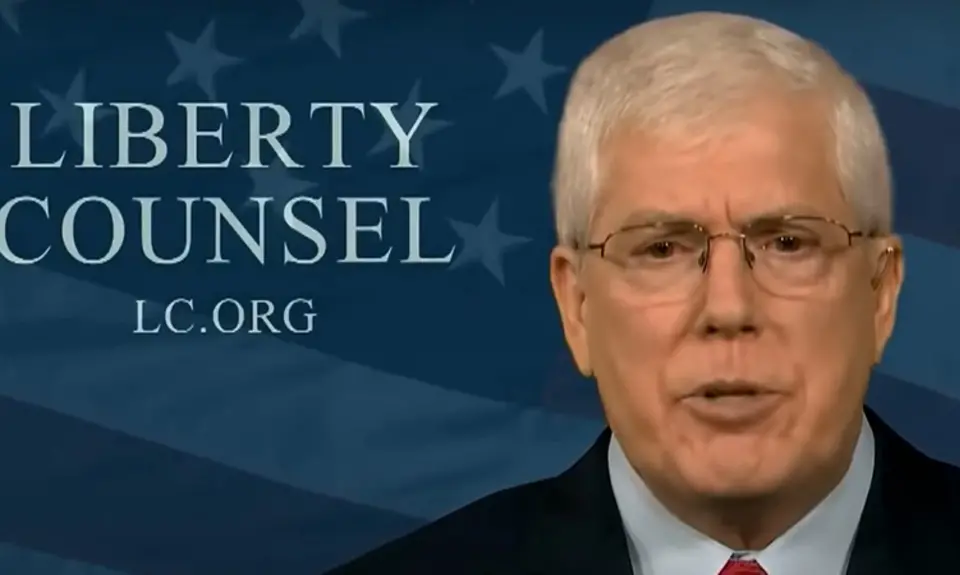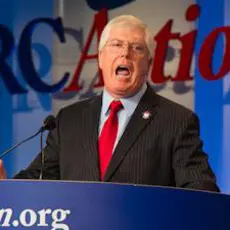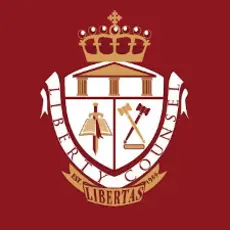Mat Staver suggested on Janet Mefferd’s radio show Monday that governments have no constitutional authority to place limitations on church services even during an emergency like the COVID-19 pandemic. Staver, who heads the religious-right legal group Liberty Counsel, recently compared enforcement of social distancing restrictions against churches to the treatment of Jews in Nazi Germany.
Liberty Counsel has declared this Sunday, May 3, to be “ReOpen Church Sunday,” and has urged all churches to reopen in some way. When Mefferd asked how that would work given the wide variation in state and local guidelines now in place, Staver said it would vary from place to place, but also suggested that churches have to decide whether “that’s the hill for them to die on,” seemingly confirming our suspicion that “ReOpen Church Sunday” is designed to spark new conflicts that Liberty Counsel can use to promote the religious right’s political narrative that Christians are facing persecution in the U.S.
Mefferd asked Staver about the case of a church in Virginia that she characterized as Gov. Ralph Northam “criminalizing worship.” Staver said Northam’s order limiting gatherings to 10 people had “literally criminalized the pastor and Christians and he’s doing that all over the Commonwealth.” Staver insisted that it is “not hyperbole” to accuse the governors of Virginia and Kentucky of “criminalizing Christianity.”
Staver suggested that the First Amendment prevents government officials from putting any restrictions on how churches worship. He told Mefferd that “none of these restrictions on the churches are constitutional”:
I haven't seen one that's really constitutional. We've had courts that already said you can't ban parking lot churches. We've also had a court Saturday night that said in Kansas, you cannot ban churches to only having 10 people. That's the government literally crossing the line of the First Amendment, both free exercise, as well as establishment of religion. The government can't—has no authority to—tell us the form of worship or how we worship. And so consequently, lots of those restrictions are unconstitutional.
Obviously, churches need to do what they can to protect the health and welfare of people and certainly churches are urged to do that.
When Mefferd asked Staver to clarify whether governments are able to use emergency powers in a situation like the pandemic, Staver answered in two ways. First, he said, they can’t discriminate against churches by allowing people to assemble in commercial operations but not churches. And then then he went further:
But on the other hand, understand none of those have a constitutional right to exist. Liquor stores don't, Walmart, Kmart, Lowe's, none of those have a constitutional right to exist and assemble. Churches do. They not only have a constitutional right under the Free Exercise Clause, the government—Commonwealth of Virginia or any state, for example—has no ability to declare what's orthodox or to dictate how you must worship.
In other words, they can't say, ‘We're going to close you churches, and you can go worship online, or you can't do this or you can't do that.’ That's beyond their authority. So yes, during states of emergency, different restrictions can come into play. However, the Constitution never goes out of play. And there is no pause button on the First Amendment or any other constitutional right. So, churches always have that. They have a preferred right to exist over these other commercial operations that don't have an independent stand alone constitutional right that's there for a reason. And that's why our founders put it as the First Amendment to the Bill of Rights.
Mefferd suggested that mosques might be getting preferential treatment during the Muslim holy month of Ramadan, something Staver said Liberty Counsel is keeping an eye on.
Liberty Counsel’s ReOpen Church website includes advice for churches on gathering in different ways that allow them to take social distancing considerations into question.







